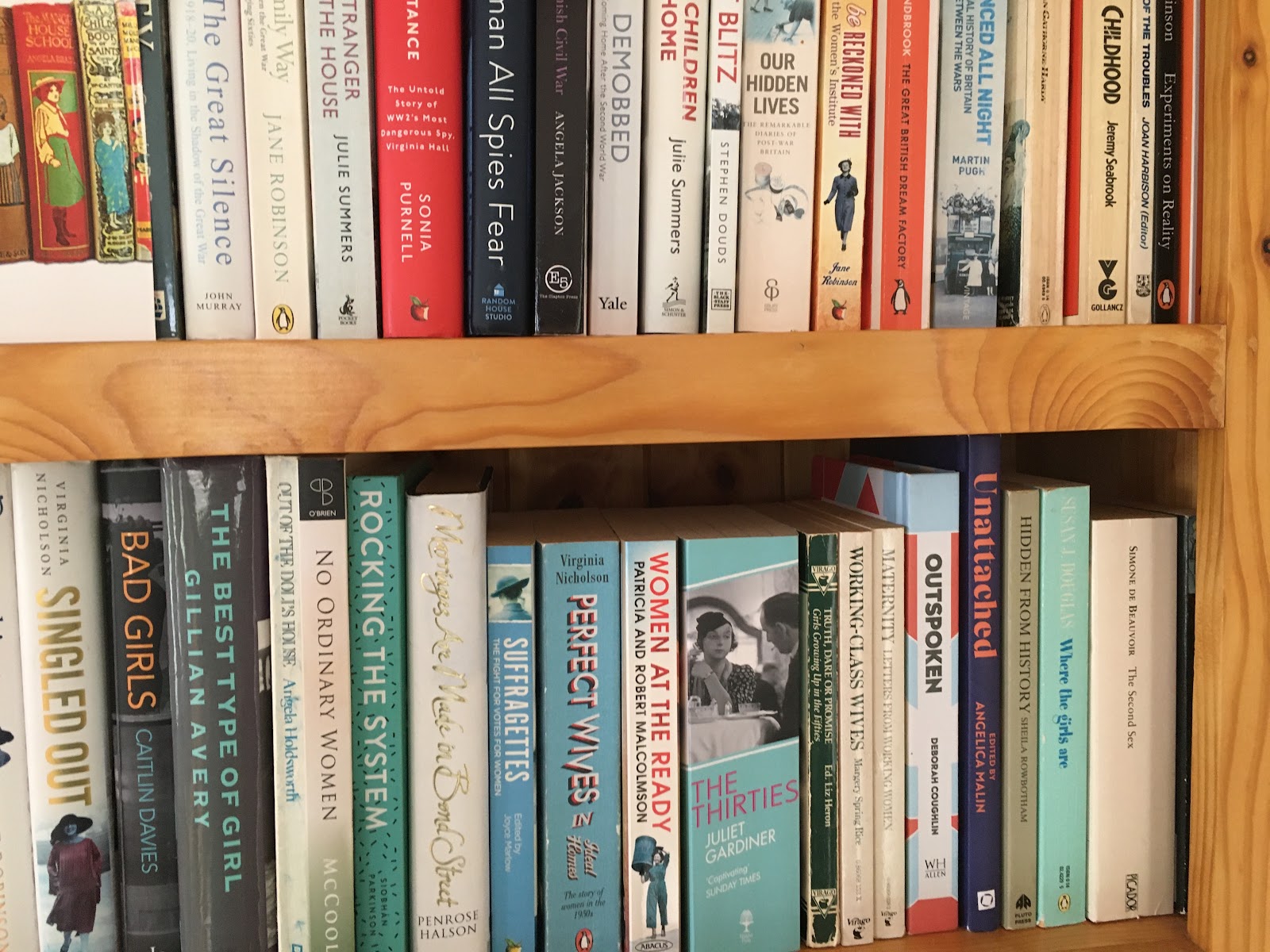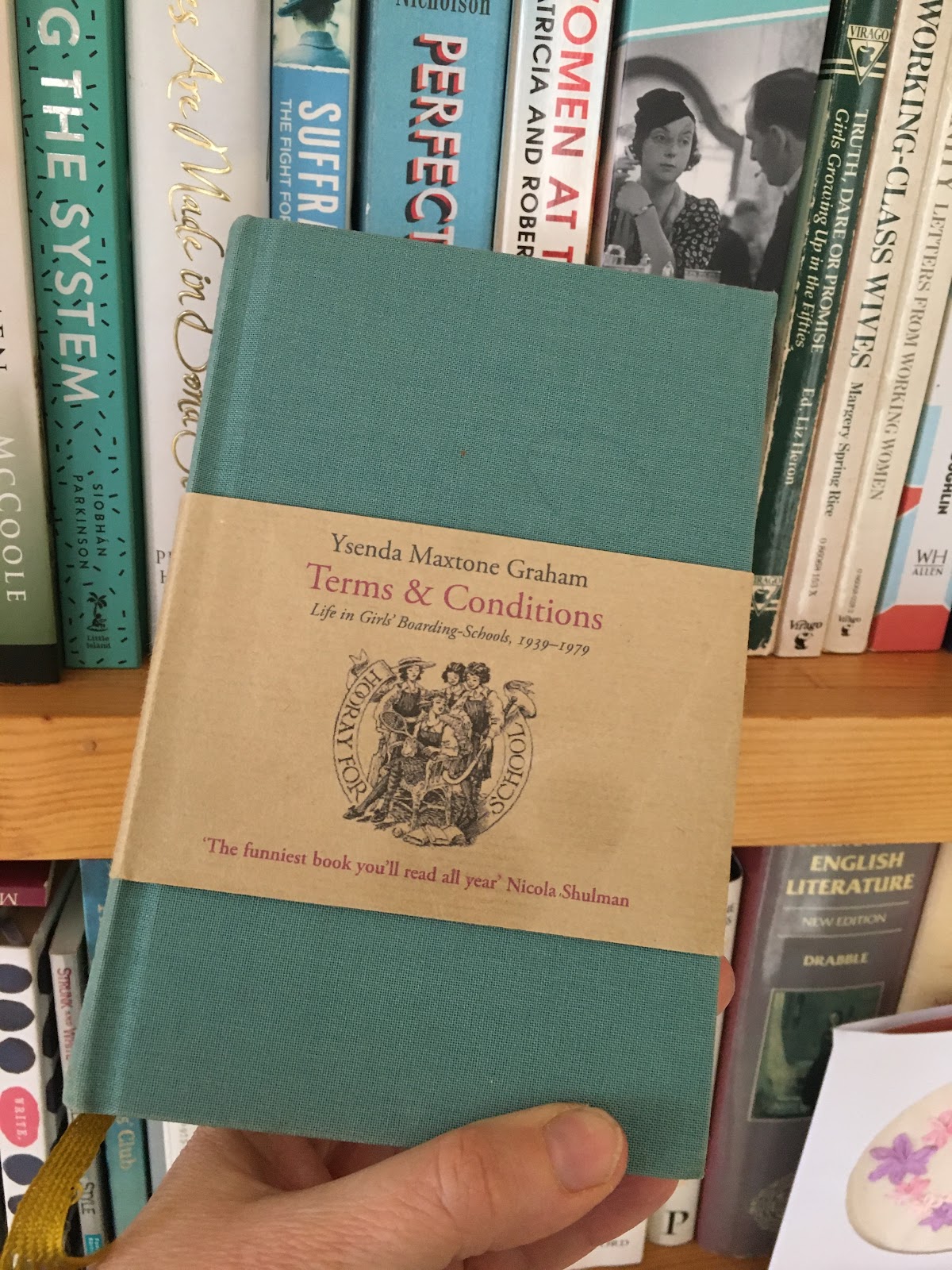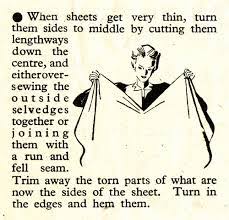Like most History Girls I love reading – fiction, non-fiction, old favourites, new releases, whatever I’m in the mood for. Sometimes, especially if I’m having a vexatious time with the vagaries of the publishing industry, or if life is otherwise stressful, I tend to go ‘off’ fiction for a while. At those times, nothing appeals so much as a good dose of social history – I especially love twentieth century history about the lives of women and girls.
 |
| my go-to bookshelf when I fancy a bit of social history |
Recently, for research for my forthcoming children’s novel set in a girls’ school, I reread Terms and Conditions, Life in Girls’ Boarding Schools, 1939-1979. This is the first of three books by the writer Ysenda Maxtone Graham. My edition is the first, an unassuming, deliberately retro-style cloth-bound hardback published by the wonderful Slightly Foxed in 2016. That the book did well is evident by its subsequent publishing history – it came out in paperback the following year, and since then Graham has published two similar books, British Summer Time Begins, which focuses on the long school holidays, and Jobs for the Girls, about women in the workplace. All the books, which are based round the reminiscences of living people, range in scope from the 1930s to the 80s/90s, have sold well and been enthusiastically reviewed.
As someone who writes fiction about the lives of girls and women, at work, at school and at play, these books have been wonderful research material, but also a great joy. Ysenda Maxtone Graham writes with humour and warmth, and the books certainly appealed to those who love a bit of nostalgia, but they are very sharply observed too.
I particularly enjoyed Jobs for the Girls, where we meet women – and many teenage girls – at work in factories and offices of all sorts, often giving those jobs up on marriage as was expected. By writing about this aspect of women’s lives, Graham is really shining a light on society more widely.
I’ve always loved reading and writing about women at work; my favourite bits of my novel Mrs Hart’s Marriage Bureau (Harper Collins, 2023) were the scenes set in the back office of the eponymous bureau. As a lifelong fan of the Chalet School series, I always loved the glimpses of the staff at rest in the staffroom, gossiping, smoking and eating chocolates. (The years I actually spent in a school staffroom, in my former life as a teacher, were less relaxing.)
In my adult reading, too, I love the little details of life in offices, on farms, in hospitals and factories. One of my go-to comfort reads (I am not alone in this) is the Cazalet saga by Elizabeth Jane Howard, and much as I love the relationships and adventures of the central characters, I also relish the domestic minutiae – how will the cook feed all those people and how can she stop the meat from spoiling in the heat? It’s the same instinct that takes me often to my granny’s old recipe books, even though I know I will never cook brains or rissoles.
Of course Howard was writing about the years of her own childhood, and Graham is mining the memories of her interviewees. What I love best are the incidental details in the fiction from earlier decades – how people lit their fires and polished their furniture and cleaned their typewriters and spent their wages at Woolworth’s. Dorothy Whipple’s books are all delightful, but one of her earlier novels, High Wages, though not generally seen as one of her masterpieces, appeals to me because the heroine works in, and gradually rises to own, a dress shop.
This isn’t a learned essay; it’s a gentle meander through some favourite books, but I make no apology for that. I’m a History Girl because I love those small domestic details, and always have done ever since I first read about the Fossil sisters saving the penny and walking to see the doll’s houses in the V & A, or about Laura Ingalls curling her bangs with a hot poker, or the Chalet School girls hemming sheets ‘sides to middle’ to increase their lifespan – the sheets’, not the girls’.
I was sad to finish the Ysenda Maxtone Graham books, and I do think many History Girls would enjoy them too. She has written about people, mostly women, at school, in the summer holidays and at work; I wonder where she might go next? Wherever it is, I can’t wait.







I gave jobs for the Girls to a friend at Christmas. She was born in 1938, like my late sister, and I previously gave her the seaside one. I didn't know about the boarding school one. How my sister would have loved it. She went to Christ's Hospital as a boarder in 1949 and was very happy there. Thank you for the piece.
ReplyDelete